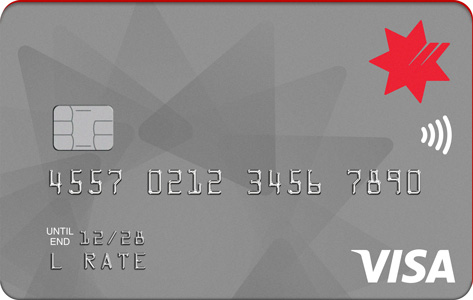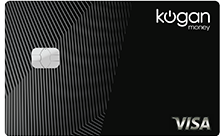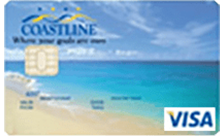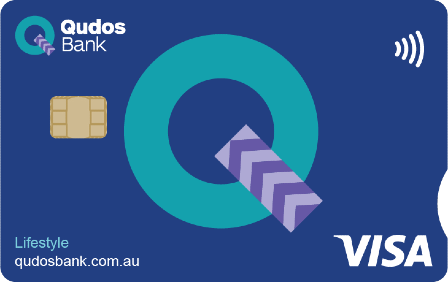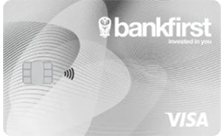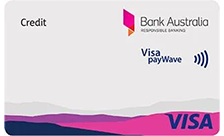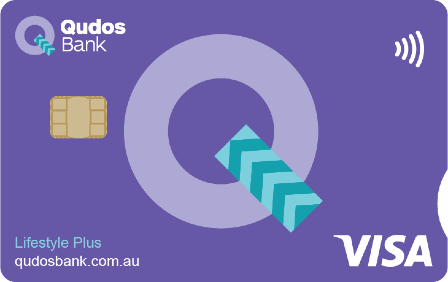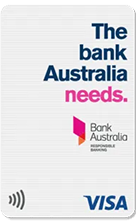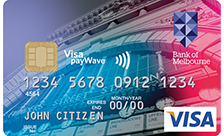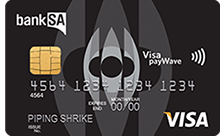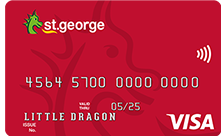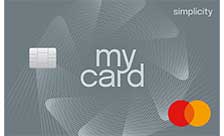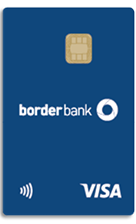What type of no annual fee credit card offers are you looking for?
There are several types of no annual fee credit cards, each with different features or ways to avoid paying a fee.
Below, we’ve rounded up some of the best offers based on the type of no annual fee card that suits your needs. Please note these are not product recommendations, and always do your own research before deciding if a credit card is right for you.
Top $0 annual fee credit cards by category (February 2026)
Best no annual fee cards with a low rate
These are no-frill, no-fee credit cards where the $0 annual fee is a permanent feature of the card, combined with a low interest rate.
| Credit card | Annual fee | Purchase interest rate |
|---|---|---|
Coastline Bank Visa Credit Card | $0 | 9.99% p.a. |
American Express Low Rate Credit Card | $0 | 10.99% p.a. |
Credit Union SA Workplace Benefits Credit Card | $0 | 0.00% for 6 months, then 11.49% p.a. |
Firefighters Mutual Bank Credit Card | $0 | 7.90% p.a. for 6 months, then 11.50% p.a. |
Health Professionals Bank Credit Card | $0 | 7.90% p.a. for 6 months, then 11.50% p.a. |
Teachers Mutual Bank Credit Card | $0 | 7.90% p.a. for 6 months, then 11.50% p.a. |
UniBank Credit Card | $0 | 7.90% p.a. for 6 months, then 11.50% p.a. |
Heritage Bank Gold Low Rate | $0 | 11.80% p.a. (no interest free days) |
Hume Bank Value Visa Credit Card | $0 | 11.95% p.a. |
Qudos Bank Visa Lifestyle Credit Card | $0 | 4.99% p.a. for 5 months, then 12.34% p.a. |
Best no annual fee credit cards with rewards
These cards have no annual fee, but still let you earn rewards points and access other perks or discounts.
| Credit card | Annual fee | Purchase interest rate | Rewards points per $1 everyday spend |
|---|---|---|---|
Kogan Money Credit Card | $0 | 21.99% p.a. | Up to 1 point |
American Express Qantas Discovery Card | $0 | 23.99% p.a. | Up to 0.75 points |
BankVic Qantas Visa Credit Card | $0 | 8.99% for 6 months then 18.95% p.a. | Up to 0.5 points |
Coles No Annual Fee Mastercard | $0 | 20.74% p.a. | Up to 0.5 points |
BOQ Specialist Platinum Credit Card - Qantas/Velocity Points | $0 | 13.99% p.a. | Up to 0.4 points |
Best no annual fee credit cards intro offers
A no-fee introductory offer waives the card’s annual fee for a specific period (usually one year) before reverting to the card’s standard annual fee.
| Credit card | Annual fee intro offer | Purchase interest rate | Rewards |
|---|---|---|---|
Border Bank Visa Credit Card | $0 for 12 months, then $30 p.a. | 10.76% | n/a |
Westpac Low Annual Fee Credit Card | $0 for 12 months, then $30 p.a. | 20.99% p.a. | n/a |
Summerland Bank Low Rate Credit Card | $0 for 12 months, then $49 p.a. | 11.99% p.a. | n/a |
ANZ Low Rate Credit Card - Balance Transfer Offer | $0 for 12 months, then $58 p.a. | 13.74% p.a. | n/a |
MOVE Bank Low Rate Credit Card | $0 for 12 months, then $59 p.a. | 8.99% p.a. | n/a |
NAB Low Rate Credit Card - Balance Transfer Offer | $0 for 12 months, then $59 p.a. | 13.49% p.a. | n/a |
Summerland Bank Rewards Credit Card | $0 for 12 months, then $79 p.a. | 18.99% p.a. | Earn up to 1 point per $2 on everyday spend |
ANZ Platinum Credit Card | $0 for 12 months, then $87 p.a. | 20.99% p.a. | Earn up to $450 back to your card in the first 4 months |
Latitude 28° Global Platinum Mastercard | $0 for 12 months, then $96 p.a. | 28.49% p.a. | Get $100 in bonus Latitude Rewards (min spend applies) plus up to $240 in Latitude Rewards each year |
Credit cards with no fee subject to minimum spend
These cards waive the annual fee as long as you spend a certain amount on the card each month or year. Some minimum spend offers are for the life of the card. As long as you spend the minimum amount, you theoretically will never pay an annual fee.
Be wary of the trap of spending more money than you otherwise would to reach the spend ‘target’. Doing that would more or less defeat the purpose of saving on an annual fee.
| Credit card | Annual fee | Purchase interest rate | Rewards |
|---|---|---|---|
Hume Bank Clear Visa Credit Card | $0 if you spend $8k per year, otherwise $30 per year | 14.95% p.a. | Earn loyalty points for every $1 you spend |
Westpac Low Annual Fee Credit Card | $0 if you spend at least $5k per year, otherwise $30 per year | 20.99% p.a. | n/a |
CommBank Low Fee Credit Card | $0 if you spend $300 in a statement period, otherwise $3/month ($36 per year) | 20.99% p.a. | Earn up to $240 cashback ($40 each month when you spend $500 or more per month for the first 6 months) |
Greater Bank Visa Credit Card | $0 after year one if you spend at least $12k per year, otherwise $49 per year | 9.95% p.a. | n/a |
ANZ Platinum Credit Card | $0 if you spend at least $20k per year, otherwise $87 per year | 20.99% p.a. | Up to $450 back to your new card when you spend $4500 on eligible purchases in the first 4 months |
Heritage Bank Visa Platinum Credit Card | $0 if you spend $35k per year, otherwise $125 per year | 17.99% p.a. | Earn 3 Heritage Credits for every $1,500 spent per calendar month |
CommBank Smart Awards Credit Card | $0 if you spend at least $2k in a statement period, otherwise $19/month ($228 per year) | 20.99% p.a. | Earn up to 1.5 Awards points or 0.6 Qantas Points per $1 spent on eligible domestic purchases |
CommBank Ultimate Awards Credit Card | $0 if you spend at least $4k in a statement period, otherwise $35/month ($420 per year) | 20.99% p.a. | Earn up to 2 Awards points or 0.8 Qantas Points per $1 spent on eligible domestic purchases |
NAB Rewards Signature Credit Card | $0 if you spend at least $5k in a statement period, otherwise $35/month ($420 per year) | 20.99% p.a. | Earn up to 1.5 NAB Rewards Points per $1 on eligible spend |
NAB Velocity Rewards Signature Credit Card | $0 if you spend at least $5k in a statement period, otherwise $35/month ($420 per year) | 20.99% p.a. | Earn up to 0.75 Velocity Points per $1 on eligible spend |
According to analysis from Money.com.au, there are...
32 credit cards in Australia with no annual card fee on an ongoing basis 37 cards with no annual fee in the first year only 10 cards that waive the annual or monthly fee if the cardholder meets the minimum spend requirements.
The average credit card fee is around $155, but can be as high as $1,750.
No annual fee credit cards explained
A no annual fee credit card is a type of credit card that does not charge customers a fee for having the card and being able to access credit.
Some cards have no annual fee ever, whereas for others the annual fee is waived for an introductory period, or for the life of the card but only if the cardholder meets a minimum yearly spend.
Why choose a no fee credit card?
You want to save money
A no annual fee card can reduce the ongoing cost of credit to zero, provided you avoid interest. You can save hundreds of dollars in fees.
You prefer a basic card
No annual fee cards may suit if you want access to credit without extra features or frills.
You don’t use your card often
Even if you don’t use the card from one end of the year to the other, it won’t cost you anything.
You want a credit card for emergencies
If the card is just there for a ‘rainy day’, you won’t pay anything if that rainy day never comes, which it hopefully won’t.
Another way you may be able to effectively pay $0 for your credit card fee is to use your reward points to cover the annual fee. This is not a glamorous way to spend your points, and you may get more for your points if you use them for flights or shopping, but as a way to save money on card fees, it’s worth considering.
How do no annual fee credit cards work?
Credit card providers usually charge an annual fee in return for giving customers access to the credit and the various perks, rewards and features a card may offer.
A no annual fee credit card doesn’t charge a fee simply for holding the card. The trade off for the cardholder is usually having access to fewer features and perks.
Here's a summary of how these cards work:
- Are similar to other credit cards, minus the yearly fee
- Don’t include as many benefits compared to rewards credit cards
- Sometimes still include some extra perks like basic insurance
- Have interest rates that vary massively (so shop around)
If you’re looking for a credit card offering rewards or a card with frequent flyer perks, you’ll almost always pay an annual fee. For premium cards, the annual fee can be in excess of $1,000.
That said, there are a handful of credit cards with Qantas points that have a $0 annual fee. Some credit cards for businesses also come with no annual fee.
What are the interest rates on no annual fee credit cards?
The average purchase interest rate for no annual fee credit cards is 18.10% p.a., based on products in our database.
Some cards may offer a much lower rate (even 0%) as an introductory deal. These usually last for six or 12 months before reverting to a higher ongoing rate (sometimes marketed as a temporary interest-free credit card offer).
Interest is calculated daily on your outstanding balance and charged to your account once a month. This charge applies on top of any annual fee. So, even if your card has no annual fee, you’ll still pay interest on any unpaid balance until it’s cleared.
Who can qualify for a no annual fee credit card?
To qualify for a no annual fee credit card you must meet the following qualifying criteria:
- Be over 18 years of age
- Be an Australian citizen or permanent resident
- Earn more than the minimum income (varies between lenders)
- Have a good credit score
- Not be bankrupt
Qualifying criteria will vary between lenders and cards, so it’s important to compare no fee credit cards before applying to ensure you are eligible.
For example, it's a good idea to check your credit score before applying.
How to apply for a no annual fee credit card
You can apply for a no annual fee credit card online, over the phone, or at your bank. A key part of the application process is demonstrating that you have the income and assets to repay the full credit limit. To do this, you’ll likely need to provide:
- Personal details: Name, date of birth and contact information
- Valid identification: Driver’s licence, passport or Medicare card
- Employment details: Job status, salary and recent payslips
- Assets: Such as your home or vehicle if you own one
- Expenses and debts: Including other credit cards, car loans or personal loans
- Employment confirmation: A signed contract if you’ve recently started a new job
If you are self-employed, you will need to provide previous tax assessments instead of payslips. You may also need to provide information from your accountant.
How to choose a no fee credit card
What’s the purchase rate?
Watch out for no annual fee credit cards that charge a higher interest rate on purchases, especially if you plan to carry a balance. If you pay off the balance within the interest-free period, the higher rate may not matter. Otherwise, a low rate credit card. (even if it has an annual fee) could be a better option.
Does it offer any rewards?
No annual fee credit cards generally don't include rewards. But some buck that trend. The sweet spot is a no annual fee card that offers some basic rewards, such as sign-up points or cashback if you spend a certain amount.
Do you need to jump through hoops for the annual fee to be waived?
Some cards waive the annual fee for a set period, while others require you to meet conditions, such as a minimum monthly spend. For example, a card might ask you to spend $5,000 each month, which can be unrealistic for some.
Are there additional features?
No annual fee cards are usually basic, but some come with features like 0% balance transfer offers, allowing you to move an existing balance to a new card with lower or no interest.
Other fees to watch for on no annual fee credit cards
Remember, the annual fee is just one of the fees you could be charged on a credit card. Others fees to watch for on no annual fee credit cards include:
- Foreign currency conversion fee: An additional charge for transactions made outside of Australia. Some travel credit cards waive this fee – in fact there are more than 20 products available that offer 0% international credit card fees.
- Balance transfer fee: Either a flat fee or percentage of the balance if you transfer an existing credit card balance to a new card.
- Over the counter payment fee: If you pay your credit card bill in person, with fees starting at around $2.
- Cash advance fee: A credit card cash advance is charged when making a cash withdrawal, and usually at a higher rate of interest than the card’s purchase rate.
- Over limit fee: Charged if your balance exceeds the card limit.
- Late payment fee: Charged if you don’t make the minimum repayment on your owing balance.
- Dishonour or direct credit fee: Charged if repayments are missed when paying through direct debit.
- Additional cardholder fee: A cost for additional cardholders other than the primary cardholder.
- Replacement card fee: Charged if the card is lost or damaged.



